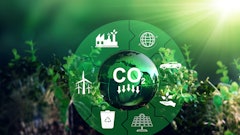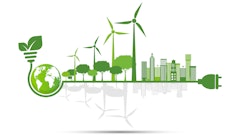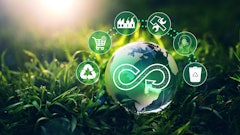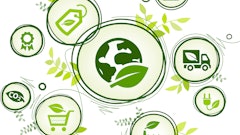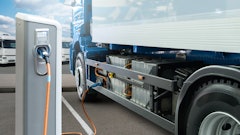
Earth Day is around the corner and it's time to turn our attention to carbon footprints. Celebrated annually on April 22nd, Earth Day at its core serves as a global reminder of the importance of environmental conservation and sustainability. Over the years, this day has increasingly influenced various sectors to adopt greener practices, and that includes in the supply chain.
Sustainability is on the minds of businesses every day in the quest to optimize and reduce their environmental impact. As a hyper focused highlight, celebrating Earth Day starts with reexamining what processes are in place and what options are available to further progression.
The implementation of sustainable sourcing practices is one action. This involves sourcing materials and products from suppliers who adhere to environmentally friendly practices, use renewable resources and minimize waste. By choosing sustainable suppliers, companies act in a collective effort to reduce the carbon emissions associated with the production and transportation of goods.
Earth Day might also be an encouragement for companies looking to invest in solutions that improve operations and cut unnecessary waste. For industrial manufacturers, a viable option could be the benefits of AI to predict and optimize in spaces that have gone unchanged for a very long time. Alp Kucukelbir, Ph.D., co-founder of Fero Labs, explains how AI can achieve more circular production processes.
“Since Earth Day last year, there has been notable progress to drive forward climate change including the recent $6B funding from the Biden/Harris Administration to help decarbonize America’s manufacturing sector. The European Union’s Carbon Border Adjustment Mechanism (CBAM) tariffs. The German government’s 4 billion Euros grants for industrial decarbonization. In addition to the “beginning of the end,” statement at COP28 signaling steps toward transitioning from the fossil fuel era. These transitions will each require a combination of solutions which makes the funding a great step forward,” says Kucukelbir. “AI can benefit all of these projects to accelerate decarbonization. AI will reduce the amount of industrial heat wasted, minimize out-of-spec production while transitioning technologies and speed up the technology transition itself to get high-efficiency plants running as quickly as possible.”
Kucukelbir says that through the use of such tools, by Earth Day 2025, we could cut down emissions by 800 megatons, but the actions start today.
Earth Day is a powerful catalyst for change, often teeing up the sustainability acts for the coming year, and as companies continue to prioritize sustainability, these efforts not only benefit the environment but contribute to building a more resilient global supply chain.



